Introduction
In India, GST (Goods & Services Tax) applies to solar panels, inverters, and EPC (Engineering, Procurement & Construction) services. These tax rules can be confusing for buyers and businesses. This article answers common questions about GST rates, calculation methods, and recent changes. It also explains legal updates and how GST works for residential and commercial users in 2025.
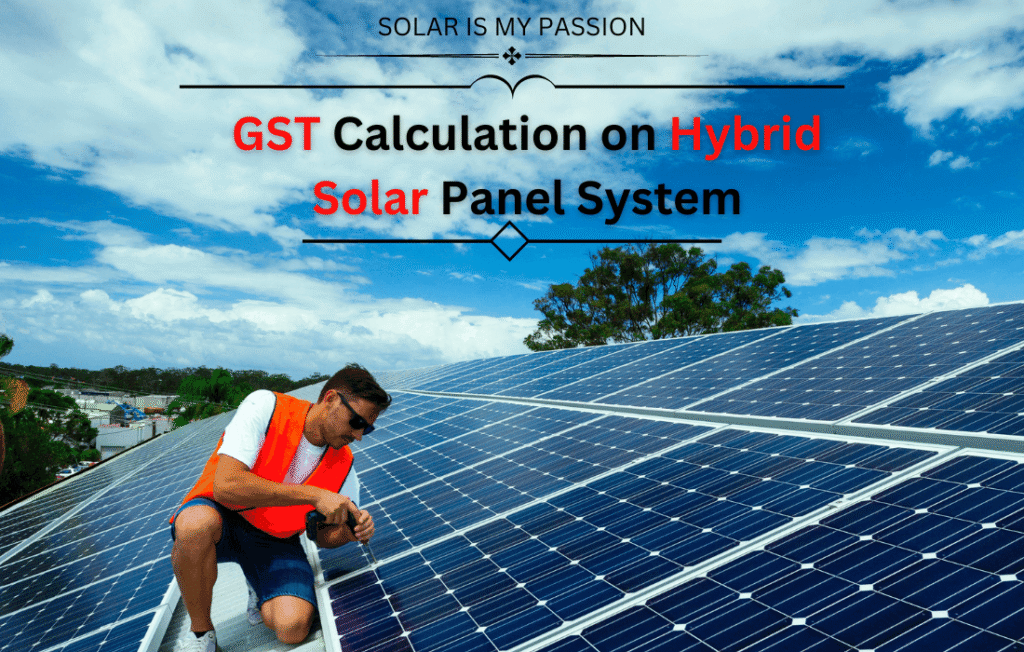
1. What is the current GST rate on solar panels in India?
Anúncios
Solar panels or photovoltaic modules are taxed at 12% GST. Earlier, it was 5%, but the government increased it to correct the tax structure.
2. What is the GST rate for solar inverters and other solar products?
- Solar inverters: 12% GST
- Solar lanterns and home lighting kits: 12%
- Solar water heaters: 12%
- Mounting structures and support frames: 18%
Other parts like charge controllers and wires also attract 18% GST.
3. What GST applies to EPC or installation contracts?
An EPC contract includes goods and services. It is treated as a composite supply. This means:
- 70% of the project value is treated as goods. GST is 12% on this.
- 30% of the value is for services. GST is 18% on this.
- The average GST rate comes to around 13.8%.
Anúncios
Also Read What is the Impact of GST on Solar Panel Prices Prices? 2025
4. Are there any legal rulings on GST for solar projects?
Yes. In January 2025, the Andhra Pradesh High Court ruled that EPC projects for solar plants are composite supplies. So, a 5% GST rate should apply to the entire contract. Some companies have started using this lower rate, but it may not apply nationwide until confirmed by higher courts or the GST Council.
5. Are there any exemptions or special GST benefits?
At present, no full exemption is available for solar panels or inverters. However, there are exemptions on some parts used in solar manufacturing. Finished solar products still attract GST.
6. How is GST calculated on an EPC invoice?
Let us take an example of an EPC project costing ₹1,00,000.
Anúncios
- Goods value (70%) = ₹70,000. GST @12% = ₹8,400
- Services value (30%) = ₹30,000. GST @18% = ₹5,400
- Total GST = ₹13,800
- Effective GST rate = 13.8%
If the 5% GST rule from Andhra Pradesh is accepted nationwide, then GST on ₹1,00,000 = ₹5,000 only.
7. What are the HSN and SAC codes?
Below are the common codes and GST rates:
| Item | Code | GST Rate |
|---|---|---|
| Solar panels (modules) | 8541 | 12% |
| Inverters | 8504 | 12% |
| Solar lights and home kits | 9405 | 12% |
| Solar water heaters | 8419 | 12% |
| Mounting structures | 7308/7610 | 18% |
| Cables, accessories | Various | 18% |
| EPC installation (service) | 9954 | 18% |
| EPC project as composite supply | – | 5% (disputed) |
8. Can buyers claim Input Tax Credit (ITC)?
- Commercial and industrial users can claim full ITC.
- Residential users cannot claim ITC.
- Government or state-owned projects may be GST-exempt but lose ITC benefits.
9. Does net-metering affect GST?
No. Net-metering is a billing method. It does not impact how GST is calculated. GST is applied to the system and services used, not on how energy is consumed.
10. How do subsidies interact with GST?
If you receive a government subsidy, it is calculated after GST. GST is charged on the full invoice amount. Then, the subsidy amount is reduced from the total payable. This does not reduce the GST paid, but it lowers your final cost.
Summary of GST on Solar (2025)
- Solar panels, inverters: 12% GST
- Mounting structures and accessories: 18% GST
- EPC services: 70/30 rule leads to 13.8% effective GST
- Some businesses apply 5% GST based on recent court ruling
- Residential buyers cannot claim ITC
- Subsidies do not reduce GST amounts
FAQs – Quick Answers
Q1. Is GST 12% on all solar products?
No. Only panels and inverters have 12%. Structures and wires are 18%.
Q2. What is the GST on an EPC solar project?
Standard GST is 13.8%. Some cases may apply 5% based on legal rulings.
Q3. Can homeowners get GST refund or ITC?
No. Only businesses can claim ITC.
Q4. Are solar projects fully tax-free?
No. All major solar products have GST. Some inputs in manufacturing are duty-free.
Q5. Will GST rates change soon?
The GST Council may revise slabs in mid-2025. Watch for updates.
Q6. Does the 5% GST ruling apply in all states?
No. It applies only in Andhra Pradesh. Other states may follow, but it is not guaranteed.
What Should You Do?
- Ask your installer if they apply the 5% or 13.8% GST.
- Check invoice breakdown—goods and services split must be shown.
- Businesses should keep all bills for ITC.
- Follow GST Council news for updates.
- Know your subsidy terms and how they apply after GST.
Conclusion
GST on solar systems in India has changed over the years. In 2025, most solar items carry 12% GST. Structures and accessories are taxed at 18%. EPC services are treated as a mix of goods and services, with a combined rate of 13.8%. However, a new legal ruling has opened the door to using a flat 5% rate in some cases. Buyers should talk to their vendor or tax advisor to know which rate is applied. While residential users cannot claim GST back, commercial users can benefit through ITC. As solar adoption grows, it is important to stay informed about taxes, rates, and benefits.
Author- Ayush

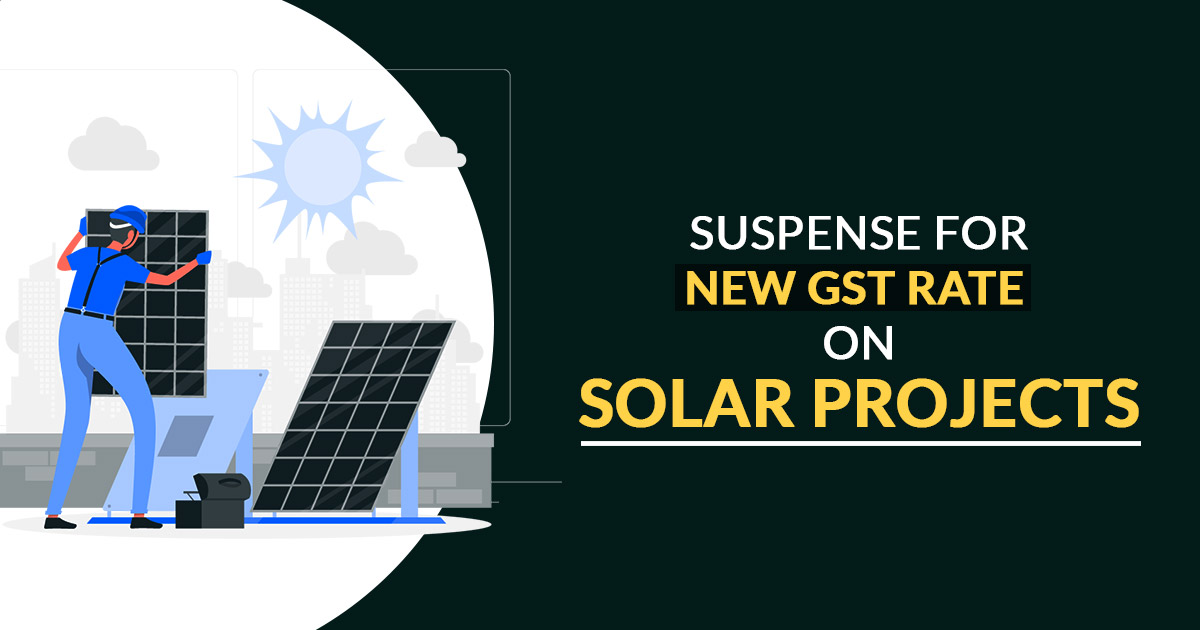
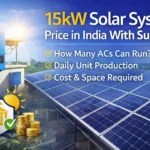
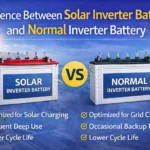


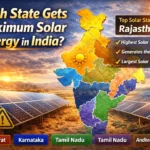
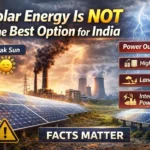
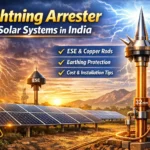
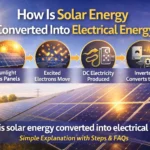
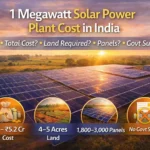
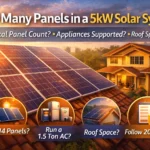
1 thought on “FAQs – GST on Solar Panels, Inverters and EPC in India – 2025”